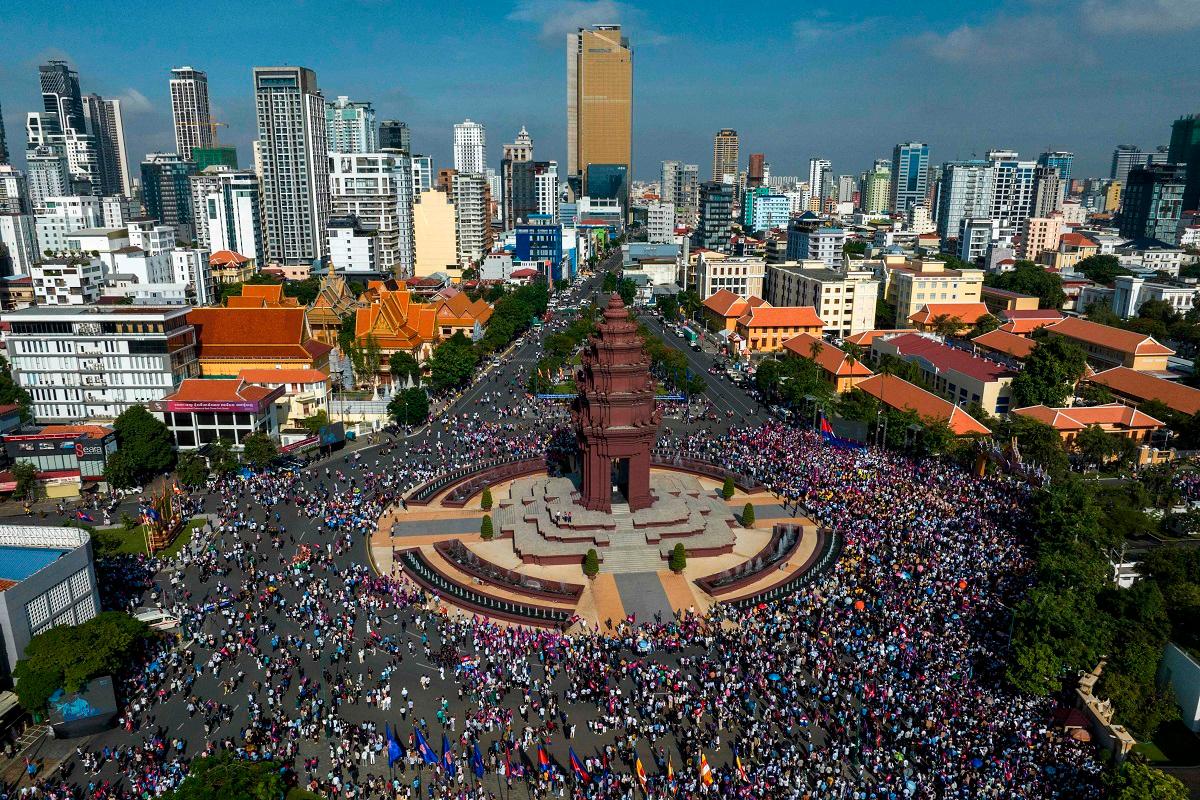BANGKOK: A Thailand-Cambodia territorial row has ignited a political crisis in Bangkok, pushing the government there to the brink of collapse.
Tensions flared between the Southeast Asian countries after a Cambodian soldier was killed in a border clash at the end of May.
The audio of a diplomatic call between the two sides intended to sooth the spat was leaked on Wednesday -- its contents provoking widespread anger towards the Thai leader.
Here are five things to know about the border causing friction between the neighbouring nations:
Colonial hangover
Thailand and Cambodia’s 800-kilometre-long (500-mile) border was largely drawn during the French occupation of Indochina between 1863 and the mid-1950s.
Thai political scientist Thitinan Pongsudhirak said that the mapping agreed between the French and the Kingdom of Siam -- encompassing Thailand’s current territory -- remains the “crux of the problem” today.
In World War II, Siam gained certain Cambodian territories but was forced to hand them back to French rule in 1946.
The 1979 overthrow of Cambodia’s communist Khmer Rouge regime blurred the boundaries further as its last members fled to the border region for refuge.
Dozens of kilometres remain contested and in 2008 military clashes erupted over a patch of land next to Preah Vihear, a 900-year-old UNESCO-recognised temple on the border.
Sporadic violence from 2008 to 2011 led to the deaths of at least 28 people and displacement of tens of thousands.
A new chapter
The latest crisis erupted on May 28 when a Cambodian soldier was killed in an exchange of gunfire with the Thai army at the border, with both sides claiming they had acted in self-defence.
The armies agreed to reposition their troops, and restrictions were imposed on border crossings.
But peace-seeking talks stalled and Cambodia banned imports of Thai fruit and vegetables, and cut off internet routed through its neighbour.
On Wednesday, a weekend phone conversation between Thai Prime Minister Paetongtarn Shinawatra and Cambodia’s former prime minister was leaked, with Paetongtarn accused of appeasing Phnom Penh and undermining the Thai army.
One of her key coalition partners has backed out, leaving her government teetering on the brink of collapse.
International adjudication
Cambodia has asked the International Court of Justice (ICJ) to settle the border dispute.
The UN tribunal granted Phnomh Penh sovereignty over the Preah Vihear temple in 1962 and over a small patch of land surrounding it in 2013, but Thailand does not recognise its jurisdiction.
Prime Minister Hun Manet said earlier this month that Cambodia had filed a new complaint with the ICJ over four disputed areas, but Thailand has pushed to seek a solution through a nearly 30-year-old bilateral mechanism.
Political scientist Thitinan said Cambodia’s fresh complaints to the ICJ would likely lead to “an unfriendly relationship for many years”.
Domestic dynamics
Analysts say the conflict reveals an uneasy mood in both nations.
Cambodian political analyst Ou Virak said the country is “desperate to stand up to what could be perceived as bullying by a bigger neighbour”.
But he warned the “nationalist flame can easily be ignited and is very difficult to put out”.
In Thailand analysts say the conflict is being fanned by long-standing tensions between the Shinawatra political dynasty and the Thai army, which has staged a dozen coups and remains immensely influential in periods of democratic rule.
The latest border flare-up “has allowed the Thai military to stay on top of the civilian government,“ said Thitinan.
Diplomatic dressing-down
The dispute looked set to continue, as Bangkok summoned Cambodia’s ambassador to deliver a “protest letter” over the leaked audio.
“This action taken by the Cambodian side is totally unacceptable,“ said Thai foreign ministry spokesman Nikorndej Balankura.
“It breaches diplomatic etiquette, is a serious violation of trust and undermines relations between the neighbouring countries.”









